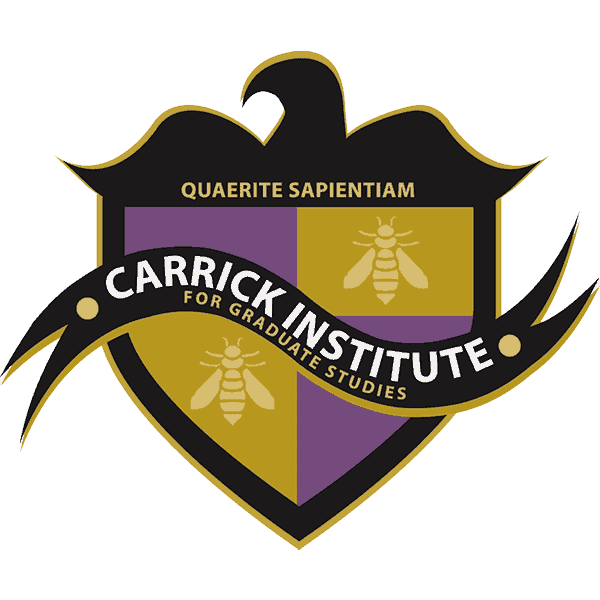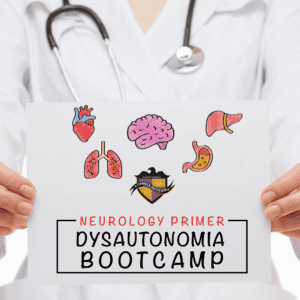12 DAYS OF NEURO SAVINGS
Day 5 - Christmas Bootcamp Day
Save 25% Off all Bootcamp Courses. Available Via Online, Self-Paced Learning, and In Person!
Bootcamp courses:
- Concussion Bootcamp
- Dysautonomia Bootcamp
- Vestibular Bootcamp
- Functional Neurology Bootcamp
- Clinical Neuroscience Bootcamp
Dysautonomia Bootcamp
Neuro-Rehabilitation in POTS Syndrome
Presented by: Dr. Nathan Keiser
Are you looking to solve Dyautonomias and don’t know where to start? Curious about the Functional Neurology approach to those conditions? Let the Dysautonomia Bootcamp serve as your jumpstart into that journey!
Often misunderstood and misdiagnosed, Dysautonomia has historically been a challenging set of conditions for clinicians and their patients… until now! Dysautonomia Bootcamp serves to quickly get you up to speed and demystify those set of conditions, along with a special focus on postural orthostatic tachycardia syndrome (POTS). Learn diagnosis, pathophysiology, examination skills and a novel treatment approach to solving what once was a challenging set of conditions.
Treatment Apporach
Clinicians leveraging the Functional Neurology paradigm to solve dysautonomia use a multimodal approach that requires astute physical and neurological examination skills, as well as the brain-based approach that the Carrick Institute has been teaching for over 44 years. The assessments taught allow clinicians to create individualized treatment plans for the patients, with the aim of restoring their normal autonomic function as quickly and effectively as possible.

Scholars Will Learn
Who is this class for?

The healthcare professionals that can attend this program are MD, DC, DO, PT, OT, ATC, LMT, ND, LAc, PA, NP, and CA (If accompanied by DC).
Dysautonomia Bootcamp Key Objectives
Section 1 - Introduction To Pots
- Definition and Overview of POTS.
- Epidemiology: Incidence and Prevalence.
- Clinical Symptoms and Presentation
Section 2 - Normal Neurocardiorespiratory Function
- Neuroanatomy and Neurophysiology of Cardiorespiratory Control
- Autonomic Nervous System: Sympathetic and Parasympathetic Functions
- Central and Peripheral Mechanisms in Cardiorespiratory Regulation
- Reflexes and Feedback Loops
Section 3 - Pathophysiology of POTS
- Altered Neurocardiorespiratory Function in POTS
- Role of Autonomic Dysregulation
-Central and Peripheral Mechanisms Contributing to Symptoms
-Vascular Dynamics and Blood Volume Regulation in POTS
Section 4 - Bedside and Advanced Neuro-Autonomic Testing
- Bedside Evaluations: Postural Blood Pressure & Heart Rate Testing, Valsalva Maneuver, DBT, Red Saturation, Cranial Pulses
- Tilt Table Testing: Procedure and Interpretation, NASA Lean test
- Quantitative Sudomotor Axon Reflex Testing (QSART)
- Heart Rate Variability (HRV) and Baroreceptor Sensitivity Analysis
- Other Autonomic Function Tests and Their Relevance
Section 5 - Conventional Treatment Strategies
- Pharmacological Approaches: Beta-blockers, Fludrocortisone, Midodrine, and Others
- Non-pharmacological Interventions: Dietary and Lifestyle Changes, Compression Garments
- Education and Counseling for Patients
- Management of Co-existing Conditions
Section 6 - Neurological Rehabilitation Strategies
- Principles of Neurological Rehabilitation in POTS
- Graded Exercise Therapy and Functional Training
- Techniques to Manage Orthostatic Intolerance and Improve Autonomic Regulation
- Cognitive and Behavioral Strategies in POTS Management
Section 7 - Case Studies
- Presentation of Real-life Case Scenarios
- Comprehensive Assessment and Diagnosis
- Crafting Individualized Rehabilitation and Treatment Plans
- Group Discussion and Problem-solving
Course Information
Included In Your Tuition
15 Neurology Hours & Training with Dr. Nathan Keiser
All-Access to the digital recording of the class
All-Access to the flipped classroom material and online videos, including updates. The clinical applications will be organized and updated so you can easily find them, review them, and implement them in practice.
Receive any future updates to the course videos or other materials
Re-attendance – Retake the class on-site, via Livestream, or via online, self-paced learning as many times as you’d like as an audit.*
Re-attendance policy: Scholars who have registered and completed the program have the ability to re-attend the course with no additional fee. When re-attending a course, the scholar will not receive continuing education credits and will receive an audit. Carrick Institute is not responsible for providing new materials for class audits, including but not limited to manuals, shirts, equipment, etc. If manuals have been updated since the original attendance date, the updated materials will be available via PDF on the scholar’s online portal. If the scholar would like to purchase a new paper manual, they may do so before the course start date.Due to the limited seats for this program. Re-attendance for this in-person module is only available for registration 14 days in advance. If you would like to reserve a seat for this course please email admissions@carrickinstitute.comThe All-access and re-attendance as part of your tuition are specific to the this program. The re-attendance is considered an audit of the course material and does not yield CE or CEU credits. It does transfer to other programs offered by the Carrick Institute. To view full Terms & Conditions, click here.
For more information on CE/CME eligibility, visit https://carrickinstitute.com/ceinfo/
Continuing Education
Continuing education requirements to maintain certification status through a professional association are usually separate from the state board’s requirements. In order to maintain your certification status in your state please submit a State Continuing Education Application Form. *We cannot guarantee approval for individual state CEUS. Each state has different rules and regulations. State Applications need to be submitted at least 90 days prior to the state date of your course* Recertification / Diplomate Requirements: All Carrick Institute courses are approved by the ACFN & ACNB.




